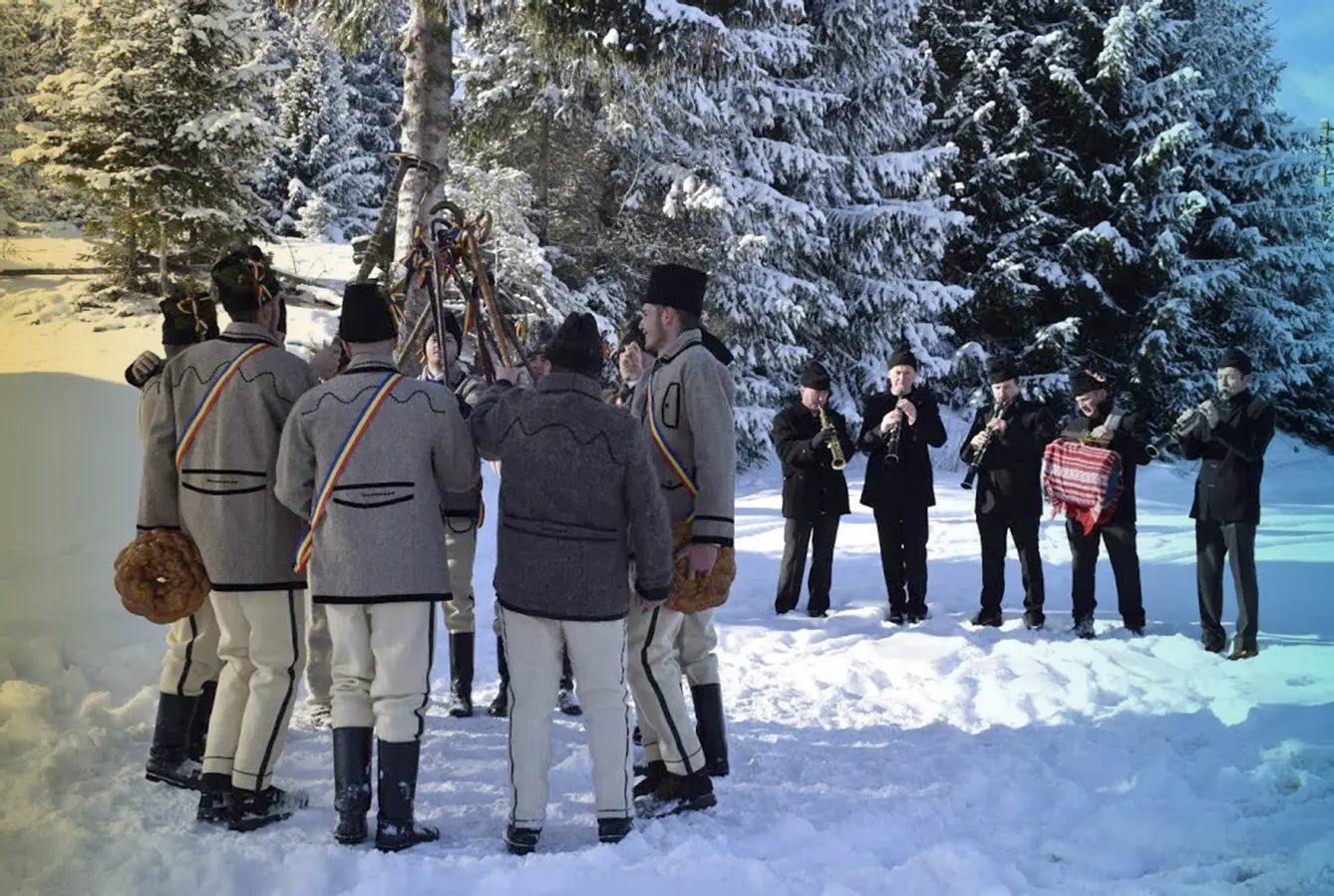Juni is an archaic, regional term used to describe a young, unmarried man. The tradition of Colindatul Junilor (often traduced as Men’s Caroling) has always been dear and close to the hearts of the Romanian people, as it brings together in joyous celebration the entire community. Among the Juni groups around the country, the most notorious one is probably the Mărișel one, belonging to the county of Cluj.
Here, in the heart of the Apuseni Mountains, at an altitude of 1000 meters, enduring freezing temperatures and great snows, groups of about a dozen young men carol the village, house after house, day after day, celebrating the birth of Jesus and sharing the Good News in a tradition that is believed to be one of the oldest customs still in practice today in Romania.
The “show” starts after the Christmas Eve service at the Church. But preparations for it begin long before. The carols, dances, and instruments must be in perfect sync before the date. And once the Church bell rings, the march along the frosty village roads begins.
Juni: national and Christian
Wearing colorful accessories and sashes in the colors of the national flag and often even dressed in costumes, the young men begin their journey after receiving the Priest’s blessing. They are usually transported around not by cars but by using peasant horse carriages or sleighs. Every house must be visited by at least one group of Juni, and people are instructed to leave their outside doors open as a sign that they are expecting the colindători (Carol singing groups) to enter their homes.
To celebrate their arrival, the host gives the young men a glass of wine or other alcoholic beverage, a piece of cozonac (sweet bread), and, if they are so inclined and their pocketbooks allow, meats and other foods. In exchange, the Juni put together a fantastic performance of traditional carols, accompanied by the joyful rhythms of drums, clarinets, flutes, and other instruments.
Colindatul junilor: caroling that predates Christianity
The group is led by a taroste, an elder, married member of previous groups, who blesses the goods and the hosts and wishes them all the best in the upcoming year. No house is left until the women of the household are spun around in a dance with one – or more – of the Juni. Last but not least, after multiple songs and dances, the young men are invited to eat and drink – not for long, though, as they must accomplish their mission to visit each and every house of the village. In Mărișel, depending on the number of groups, each of them is required to go without sleep for up to three days to ensure that no house is left unvisited. Being a jun is no easy job, but it sure is worth it.
This custom is what some may call a tradition as old as time. Historians say it precedes Christianity and what today is seen as a celebration of the birth of Jesus Christ was, back in the day, a ritual to cast away evil spirits and bring upon one’s house blessings for the following year. This is why, among the Christmas-themed songs, you may encounter leitmotifs of agriculture and daily life.
In 2014, this practice entered the UNESCO Representative List of the Intangible Cultural Heritage of Humanity and remains, to this day, a proud Christmas tradition of the Romanian villages that still organize the groups.







